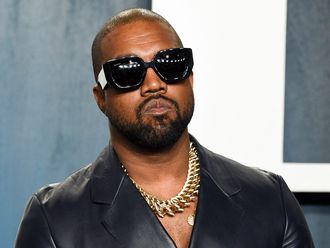In 2014, American Idol hosted a performance by the Chainsmokers, a duo who had appeared, apparently from nowhere, with a preposterous, internationally successful novelty dance hit called Selfie.
At the start of the performance, the band hit play on their decks, then headed into the audience to take selfies, while lines such as “What should my caption be? I want it to be clever,” blared out.
The performance seemed to mark a new low for various aspects of popular culture, but the nadir came as the audience crowded around the Idol judges’ table.
“Everybody’s hands in the air!” cried a Chainsmoker. “Look over here! American Idol, get in our selfie!”
The camera angle was unforgiving: at that moment the duo were being watched by precisely five members of the studio audience. Everybody else was still staring at the judges.
The palpably woeful appearance prompted uproar in the dance music community (“The only thing @TheChainsmokers and pop EDM have in common is probably cancer,” suggested DeadMau5 on Twitter), but one of the more even-handed responses came from DJ Laidback Luke, who suggested the band had simply fallen into a well-worn trap. “Make sure you put out a track you can be really proud of,” he warned future artists. “If you break through with that, you’re forever glued to that track.”
He added that the Chainsmokers would still be lumbered with Selfie in 20 years.
Flash forward just two years. “I’d love to work with Bon Iver,” says the Chainsmokers’ producer, songwriter and sometime vocalist Drew Taggart. He’s sitting next to founding member Alex Pall, the band’s A&R muscle, on the fourth floor of Sony Music’s London HQ. “Jonsi from Sigur Ros, too,” Taggart adds. “Kanye ...”
By this point the Chainsmokers are the second most streamed act on the planet and, contrary to prophesy, Spotify statistics show that not one of their 10 most popular songs is, in fact, Selfie.
The comedy EDM has been jettisoned in favour of pensive lyrics and sparse, downbeat electronic pop, while their summer smash Closer has been a worldwide No 1, currently spending its 11th week at the top of the US charts. Their sound is everywhere — in their own music and in that of artists attempting to copy it. And Taggart’s desire to work with Bon Iver isn’t as ludicrous as it might once have seemed — emo heroes Dashboard Confessional and Weezer have been in touch, and the band have already been in the studio with Coldplay.
Nobody saw it coming, but Taggart and Pall have pulled off one of the most successful two-year career turnarounds since David Bowie looked to the skies and wondered if the world really needed another Laughing Gnome.
“We’re terrible at written interviews,” is one of the first things Pall has said this afternoon. “So if this turns out to be a good interview for us, that would be awesome.”
Unfortunately, things get off to a shaky start. We discuss the American Idol performance (“We did it for the right reasons,” Pall says, “it just wasn’t the right ... thing”) then move on to what has been called was another potentially career-ending moment: an awkward and high-profile MTV VMAs performance of Closer during which Taggart’s vocals were, to put it charitably, a little higher in the mix than might have been wise.
“Do you think that was a ... career ending moment?” he asks. I explain that surely, had the band’s momentum not been what it was, the wheels could indeed have fallen off.
“You think it would have ended our career?” he asks again. He is amazed. Then he’s slightly snappy: “No, not really.”
Then more relaxed: “I’d never done anything like that before. This whole pop world is new territory for us.”
And, he points out, that some fans did in fact quite like the song. “A lot of people really enjoyed that performance,” he insists. “I see that on Twitter all the time.”
“We’re pretty honest about all our flaws and mistakes,” Pall adds. “We always try to bounce back. Which is what we’ll be trying to do at the AMAs.”
When we speak, the band’s appearance at the American Music Awards is still a secret. “Off the record!” interjects the Chainsmokers’ manager, Adam Alpert, who’s sitting across the table. “Yes,” Alex agrees. “Off the record.”
The band have good reason to be defensive in interviews, sceptical of their ability to pull them off, and keen to have their manager keeping watch.
Spinning the frat boys image
In September, a Billboard cover story didn’t pull its punches in depicting the band as tedious frat boys, and the duo didn’t do themselves any favours in the interview.
They’re coming across in this interview as surprisingly likeable, and view that as “a lesson learned”.
“We like to have a good time,” Taggart offers, “but ... Well, they came to a party show, they saw us partying with our friends, and that was what they wrote about.”
“What do two middle-class white guys have to talk about that’s interesting for the world?” says Pall. “What they saw was two frat boys enjoying ourselves. And they chose to run with that label versus hard-working musicians.”
One thing it’s hard to question is the work the band put in early on, which takes us back a little further than Selfie. Before meeting Taggart, Pall had formed the Chainsmokers with another DJ, the amazingly named Rhett Bixler, in 2012. They would DJ five-hour sets in New York, five nights a week, for $200 a pop. When Bixler quit, Pall, who was growing disenchanted with his other job working in an art gallery, decided to devote his full attention to the Chainsmokers. He bought up the rights to the band’s name, but knew he needed a creative foil.
Enter Drew. The pair gained traction through an opportunistic, but brilliant, scheme: they would identify new indie releases doing well on music blog aggregator Hype Machine then cut unofficial remixes, hoping to ride in the original track’s slipstream. Then they would do it again. “We’d decide which song to remix,” Pall recalls, “then Drew would have seven days to finish it. As soon as he finished I’d spend seven days sending it out to every blog and writer, then he’d start on the next one. We did that every two weeks for two years.”
Then Selfie happened. The band followed that with a song called Kanye, which didn’t repeat the success of Selfie, but Pall and Taggart were growing tired of that sound anyway.
Then, in 2015, a new song called Roses reached No 6 in the US.
“Roses was like lightning,” Pall recalls. “It was an epiphany; the moment where it all started clicking.”
Meeting Chris Martin
The duo describe their creative method in refreshingly blunt terms — “we’ll spend a couple of hours talking about life,” Pall says, “until a song falls out” — but found added inspiration in a recent Malibu session with Coldplay’s Chris Martin. “Chris Martin is so open minded,” Pall begins, talking about the track they worked on together. “What we have so far is the perfect balance between a Coldplay song and a Chainsmokers song. But the way he looks at music is such a big picture. He said our song was ‘a song for the world’.”
“People like Chris Martin don’t look at a song like it’s a great song,” Taggart says. “They ask, does the world NEED this record?”
“I feel like it could be a song for the universe,” Pall says, laughing.
There’s no album scheduled but the Collage EP is released this week. It features four previously released songs with more than 1.6 billion Spotify streams between them, plus a rather good new one called Setting Fires. But it remains to be seen whether it can win round the producers and DJs who were critical of that American Idol performance.
Mark Ronson is not on the fence: after the duo criticised Lady Gaga’s single Perfect Illusion, the song’s producer tweeted that the pair were “charisma-bypassed champions of two-bar Ableton loops”, and invited them to “smash it while it lasts, fellas!!”
“I don’t know how you get forgiveness from the dance world,” Taggart shrugs. “We’ve played a lot of big, important festivals, our sets have got great reviews. We’re not at Avicii and Calvin [Harris] ‘s level, but we’ve got songs on the radio all the time. I don’t know if people think that’s cool? I thought that was cool when I was a kid ...”
Music aside, the band’s rather dubious name could, perhaps still be a sticking point. If they could, would they change it?
“I always think about that,” Pall laughs. “I still can’t think of anything better.”
He shrugs, then offers a slice of modern wisdom that makes as much sense regarding the past two years of his band’s career as it does of the way we gradually accept terrible band names.
“Something’s not cool,” he declares, “until it is cool.”














